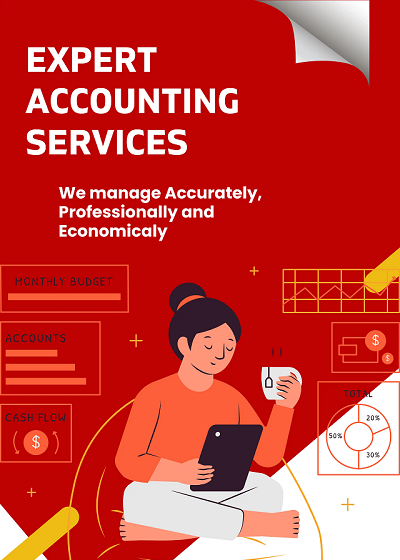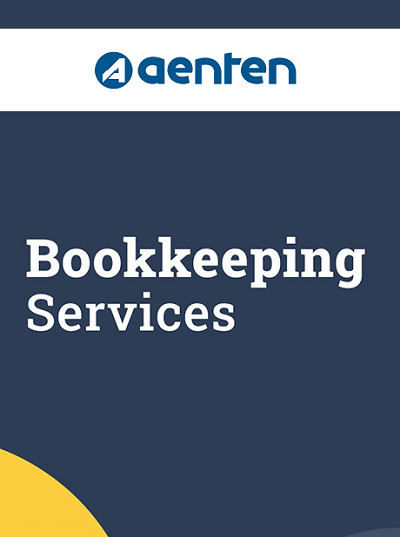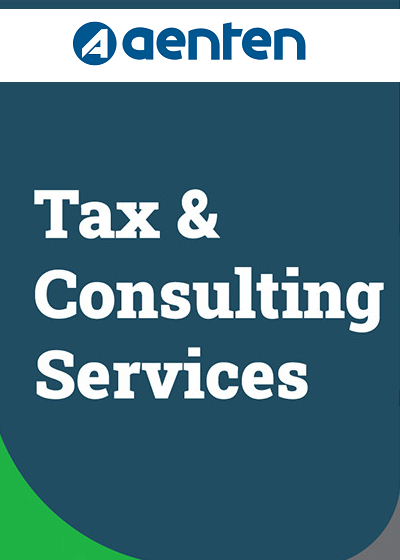Cloud accounting has revolutionized the way businesses manage their financial processes by moving accounting functions to the cloud. This comprehensive guide will explore the 10 key benefits of cloud accounting and its advantages, shedding light on why this technology has become a game-changer for businesses of all sizes.
1. Cost Savings :
One of the primary benefits of cloud accounting is cost savings. Unlike traditional accounting software that requires significant upfront investment in hardware and software licenses, cloud accounting operates on a subscription-based model, eliminating the need for expensive installations and updates.
Cost savings are among the most significant benefits of adopting cloud accounting for businesses. Traditional accounting systems often require substantial upfront investments in hardware, software licenses, and ongoing maintenance costs. In contrast, cloud accounting operates on a subscription-based model, allowing businesses to access accounting software and services through the internet for a predictable monthly or annual fee. Here’s a closer look at the cost-saving advantages of cloud accounting:
- Reduced IT Infrastructure Costs: Cloud accounting eliminates the need for expensive on-premise servers and related hardware. The accounting software and data are hosted on remote servers maintained by the cloud service provider, significantly reducing the infrastructure costs for businesses.
- No Software Licenses: Traditional accounting software typically requires purchasing licenses for each user or system. Cloud accounting operates on a pay-as-you-go basis, with subscription plans that can be scaled up or down as needed, avoiding the upfront cost of software licenses.
- Lower Setup Costs: Implementing on-premise accounting systems often involves significant setup costs, including installation, configuration, and data migration. Cloud accounting services offer simple and quick setup processes, minimizing associated expenses.
- Automatic Updates: Cloud accounting providers regularly update their software to introduce new features, security patches, and compliance enhancements. Users benefit from these updates automatically, eliminating the need for costly manual updates and ensuring they always have access to the latest functionalities.
- Maintenance and Support Included: Cloud accounting services typically include maintenance and customer support as part of their subscription packages. This means businesses don’t need to allocate additional resources or hire IT personnel to maintain and troubleshoot accounting software.
- Scalable Subscription Plans: Cloud accounting providers offer flexible subscription plans that allow businesses to adjust the level of service and the number of users as their needs change. This scalability ensures that businesses only pay for the resources they require, optimizing cost-efficiency.
- Elimination of Data Backups: Cloud accounting services automatically handle data backups and redundancy. Businesses no longer need to invest in separate backup solutions, reducing both costs and the risk of data loss.
- Reduction in Paper and Printing Costs: Cloud accounting promotes digital record-keeping and documentation. This reduces the need for physical paperwork and printing, resulting in cost savings related to paper, ink, and storage.
- Remote Access and Flexibility: Cloud accounting allows employees and accountants to access financial data from anywhere with an internet connection. This remote access eliminates the need for physical offices, further reducing operational expenses.
- Reduced Downtime: Cloud accounting providers often guarantee high uptime and availability. This minimizes the risk of financial losses associated with system downtimes or technical issues.
2. Accessibility and Flexibility :
Cloud accounting allows users to access financial data anytime, anywhere, as long as they have an internet connection. This level of accessibility offers greater flexibility, enabling businesses to manage their finances on-the-go and collaborate with remote teams effortlessly.
Accessibility and flexibility are two crucial benefits that make cloud accounting a preferred choice for businesses of all sizes. Cloud accounting enables users to access their financial data and accounting software from anywhere with an internet connection, providing unprecedented convenience and versatility. Here’s an in-depth exploration of the advantages of accessibility and flexibility in cloud accounting:
- Remote Access: With cloud accounting, users can access their financial data and software from any location, whether they are in the office, at home, or traveling. This level of remote access allows business owners, accountants, and stakeholders to stay connected to critical financial information and collaborate in real-time.
- Multi-Device Compatibility: Cloud accounting platforms are compatible with various devices, including computers, laptops, tablets, and smartphones. Users can choose the device that best suits their needs, promoting a flexible work environment and enhancing productivity.
- Real-Time Updates: The cloud-based nature of accounting software enables real-time updates. When one user makes changes or inputs data, the updates are immediately reflected across all devices and users with access to the system, ensuring everyone works with the latest information.
- Collaboration Made Easy: Accessibility in the cloud fosters seamless collaboration between team members, accountants, and clients. Multiple users can work on the same data simultaneously, view changes in real-time, and communicate effectively through integrated messaging features.
- Global Access: For businesses with international operations or remote teams, cloud accounting offers a significant advantage. It breaks down geographical barriers, allowing users from different locations to access financial data without delays or complications.
- Flexibility for Remote Work: Cloud accounting is especially beneficial in the context of remote work and flexible work arrangements. Employees can manage financial tasks and collaborate efficiently, regardless of their physical location, promoting a healthy work-life balance.
- On-the-Go Management: Business owners and managers can use cloud accounting apps on their mobile devices to oversee financial operations while on the move. This flexibility enhances responsiveness and decision-making, as critical financial insights are available at their fingertips.
- 24/7 Availability: Cloud accounting services are available 24/7, providing businesses with continuous access to their financial data. Users can work during their preferred hours, catering to global clientele or accommodating different time zones.
- No Software Installations: The cloud-based model eliminates the need for installing and configuring software on individual devices. Users can access the accounting system through a web browser, avoiding compatibility issues and reducing setup time.
- Easy Software Updates: Cloud accounting providers handle software updates automatically, sparing users from the hassle of manually updating their systems. This ensures that businesses always have access to the latest features and improvements.
- Data Synchronization: Data entered or modified through one device is instantly synchronized across all authorized devices. This synchronization ensures consistency and accuracy of financial data, reducing the risk of errors caused by working with outdated information.
3. Data Security
Security is a top priority for cloud accounting providers. They employ advanced encryption methods and security protocols to safeguard sensitive financial data from unauthorized access. Regular data backups ensure business continuity even in the event of a disaster.
Data security is a paramount concern for businesses, and cloud accounting platforms have made significant strides in addressing these concerns. Cloud accounting providers prioritize data protection and implement robust security measures to safeguard sensitive financial information. Here’s a comprehensive overview of the data security benefits offered by cloud accounting:
- Encryption: Cloud accounting platforms use encryption techniques to protect data during transmission and storage. This ensures that even if unauthorized parties intercept the data, it remains unreadable and unusable.
- Secure Data Centers: Reputable cloud accounting providers host their services in highly secure data centers equipped with physical security measures, such as biometric access controls, surveillance cameras, and restricted access areas.
- Firewalls and Intrusion Detection: Advanced firewalls and intrusion detection systems are employed to prevent unauthorized access attempts and potential cyberattacks.
- Regular Security Audits: Cloud accounting providers often conduct security audits and vulnerability assessments to identify and address potential security weaknesses proactively.
- Multi-Factor Authentication (MFA): MFA adds an extra layer of security by requiring users to provide multiple forms of identification, such as passwords and one-time verification codes sent to their mobile devices.
- Role-Based Access Control (RBAC): RBAC restricts access to financial data based on user roles and responsibilities, ensuring that only authorized personnel can view and manipulate sensitive information.
- Data Redundancy and Backups: Cloud accounting services frequently employ data redundancy and backup strategies. Data is stored in multiple locations, reducing the risk of data loss due to hardware failures or disasters.
- Data Isolation: Cloud accounting providers ensure that each client’s data is isolated from others, preventing unauthorized access between different accounts.
- Regulatory Compliance: Reputable cloud accounting platforms adhere to industry regulations and compliance standards, such as GDPR (General Data Protection Regulation) and HIPAA (Health Insurance Portability and Accountability Act).
- Secure File Sharing: Cloud accounting systems offer secure file sharing capabilities, enabling users to share financial documents and reports with selected individuals securely.
- Audit Trails: Many cloud accounting platforms maintain audit trails that track changes to financial data and user activities, providing an additional layer of transparency and accountability.
- Automatic Software Updates: Regular software updates include security patches to address any newly discovered vulnerabilities and protect against potential security threats.
- Data Ownership and Control: Cloud accounting providers typically outline data ownership and usage rights in their service agreements, assuring businesses of their control over their financial information.
- Employee Training: Cloud accounting providers train their employees to handle sensitive data responsibly and follow security best practices to protect customer information.
- Data Deletion: Cloud accounting platforms offer secure data deletion processes, ensuring that client data is properly removed from the system upon request.
4. Automatic Updates
Cloud accounting platforms are consistently updated with the latest features and improvements without any manual intervention. This ensures that users always have access to the most up-to-date tools and compliance with changing regulations.
Automatic updates are a significant advantage of cloud accounting that sets it apart from traditional accounting systems. Cloud accounting platforms are designed to continuously evolve and improve, and automatic updates play a crucial role in delivering the latest features, enhancements, security patches, and bug fixes to users seamlessly. Here’s a comprehensive look at the benefits and importance of automatic updates in cloud accounting:
- Timely Security Patches: Automatic updates ensure that cloud accounting systems receive the latest security patches promptly. This helps protect the platform from emerging threats and vulnerabilities, minimizing the risk of data breaches and cyberattacks.
- Enhanced Features: Cloud accounting providers frequently release updates with new and improved features based on user feedback and market trends. Users gain access to these enhancements without any manual intervention, enhancing their overall experience and productivity.
- Regulatory Compliance: Cloud accounting platforms need to comply with changing regulations and industry standards. Automatic updates help ensure that the system remains up-to-date with the latest compliance requirements, preventing any potential non-compliance issues.
- Improved Performance: Regular updates often include performance optimizations that streamline processes, reduce loading times, and enhance the overall speed and efficiency of the cloud accounting platform.
- Bug Fixes: Bugs and glitches are inevitable in software systems. Automatic updates address these issues promptly, ensuring that users have a stable and error-free accounting experience.
- User Convenience: Automatic updates eliminate the need for users to manually check for and install updates. This convenience saves time and effort, allowing users to focus on their core business tasks without worrying about software maintenance.
- Seamless Integration: Cloud accounting systems often integrate with other business applications. Automatic updates ensure that these integrations remain compatible and continue to function smoothly.
- Continuous Improvement: Cloud accounting providers continuously gather feedback from users and use it to refine their services. Automatic updates facilitate a cycle of continuous improvement, allowing the platform to evolve to meet changing user needs.
- Future-Proofing: Technology is constantly evolving, and automatic updates future-proof cloud accounting platforms. By staying current with the latest advancements, these systems remain relevant and competitive in the fast-paced tech landscape.
- Global Consistency: Automatic updates ensure that all users on the cloud accounting platform are on the same version of the software. This consistency ensures that everyone benefits from the latest features and security measures.
- Reduced Downtime: With automatic updates, there is minimal disruption to the user experience. Updates are typically applied during non-peak hours to minimize downtime and ensure business continuity.
5. Scalability
Cloud accounting systems are highly scalable, allowing businesses to adapt to their evolving needs seamlessly. As companies grow, they can easily upgrade their plans or add new users without the hassle of hardware upgrades.
Scalability is a critical advantage of cloud accounting that allows businesses to adapt and grow without constraints. Cloud accounting platforms are designed to accommodate the changing needs of businesses, making it easy to adjust resources, features, and user access as the company evolves. Here’s a comprehensive exploration of the scalability benefits offered by cloud accounting:
- Flexible Subscription Plans: Cloud accounting providers offer a variety of subscription plans that cater to different business sizes and requirements. Businesses can start with a basic plan and upgrade to more advanced packages as their needs grow.
- Pay-as-You-Go Model: Cloud accounting operates on a pay-as-you-go model, where businesses only pay for the resources they use. This eliminates the need for costly upfront investments in hardware and software licenses, making it cost-effective for businesses of all sizes.
- Seamless Resource Allocation: Cloud accounting platforms can scale up or down based on demand. Whether the business expands rapidly or experiences seasonal fluctuations, the platform automatically allocates resources accordingly.
- Increased User Access: As a business grows and new team members join, cloud accounting platforms allow for easy user management. Administrators can add or remove users as needed, ensuring that everyone has the appropriate level of access to financial data.
- Multiple Location Support: For businesses with multiple locations or remote teams, cloud accounting’s scalability is a significant advantage. The platform can handle data from various branches or offices, promoting centralized financial management and collaboration.
- Expanded Data Storage: Cloud accounting providers offer varying levels of data storage capacity. As a business accumulates more financial data, the platform can easily accommodate the increased storage requirements without disrupting operations.
- Integration with Third-Party Apps: Scalable cloud accounting systems seamlessly integrate with various third-party applications, ensuring that businesses can add new functionalities and features as needed without disrupting the existing setup.
- High Performance: Cloud accounting platforms are designed to handle increased workloads efficiently. As a business grows, the platform maintains high performance levels, ensuring quick data processing and real-time updates.
- Support for Global Operations: Cloud accounting’s scalability is particularly beneficial for businesses operating on a global scale. The platform can handle increased data volume and diverse financial requirements across different regions.
- No Hardware Upgrades: Traditional accounting systems often require expensive hardware upgrades to accommodate business growth. With cloud accounting, there is no need for businesses to invest in costly hardware expansions, as the cloud provider manages infrastructure requirements.
- Agility and Responsiveness: The scalable nature of cloud accounting allows businesses to respond quickly to changing market conditions and adapt to new opportunities, enhancing their competitiveness.
6. Integration Capabilities
Integrating cloud accounting with other business applications is effortless. This integration streamlines processes and reduces data entry errors by synchronizing data across different platforms, such as CRM systems, payment gateways, and inventory management tools.
Integration capabilities are a key advantage of cloud accounting platforms that enable seamless data flow between different business applications. Cloud accounting systems are designed to work cohesively with a wide range of third-party software and services, allowing businesses to streamline their financial processes and enhance overall efficiency. Here’s a comprehensive guide to the integration capabilities of cloud accounting:
- Customer Relationship Management (CRM) Integration: Integration with CRM systems enables the automatic syncing of customer data between the accounting platform and the CRM software. This integration streamlines sales and financial processes, providing a holistic view of customer interactions, transactions, and outstanding payments.
- Payment Gateways Integration: Integrating with payment gateways facilitates automatic payment processing, allowing customers to make online payments directly from invoices. This simplifies the payment collection process and reduces manual data entry.
- Inventory Management Integration: Integration with inventory management systems ensures that sales and purchase data are synchronized in real-time. This helps maintain accurate stock levels, prevent stockouts, and optimize inventory management.
- Expense Management Integration: Integrating with expense management tools automates the process of recording and tracking expenses. Employees can easily submit expenses, and the accounting platform can automatically reconcile them with bank transactions.
- Time Tracking and Payroll Integration: Integration with time tracking and payroll systems streamlines payroll processing. Employee hours and salary data are automatically transferred to the accounting platform, reducing manual data entry and minimizing errors.
- E-commerce Platform Integration: Cloud accounting systems can integrate with e-commerce platforms, such as Shopify or WooCommerce, to sync sales data and order details. This integration helps manage revenue, taxes, and order fulfillment efficiently.
- Project Management Integration: Integration with project management software allows businesses to track project-related expenses and revenue easily. Project data can be linked to corresponding financial records for accurate cost allocation and analysis.
- Tax Compliance Integration: Some cloud accounting platforms integrate with tax compliance tools to automate tax calculations and reporting. This ensures that businesses remain compliant with tax regulations and helps avoid costly penalties.
- Bank Feeds Integration: Cloud accounting systems can integrate with bank feeds, automatically importing bank transactions into the accounting platform. This simplifies bank reconciliation and ensures that financial data is up-to-date.
- Reporting and Business Intelligence Integration: Integrating with reporting and business intelligence tools enhances data analysis capabilities. Businesses can generate customized financial reports and gain valuable insights into their financial performance.
- Point-of-Sale (POS) Integration: Integration with POS systems enables seamless recording of sales data in the accounting platform. This integration streamlines cash flow management and facilitates sales analysis.
- Document Management Integration: Cloud accounting platforms can integrate with document management systems to store and manage financial documents securely. This simplifies document retrieval and ensures data compliance.
7. Real-Time Reporting and Analytics
Cloud accounting provides real-time reporting and analytics, offering businesses immediate access to financial insights. This empowers decision-makers with accurate data for informed financial planning and strategy development.
Real-time reporting and analytics are powerful features offered by cloud accounting platforms that provide businesses with immediate access to up-to-date financial data and actionable insights. Real-time reporting enables businesses to make informed decisions based on current financial information, giving them a competitive edge in today’s fast-paced business landscape. Here’s a comprehensive overview of the benefits of real-time reporting and analytics in cloud accounting:
- Immediate Access to Financial Data: Cloud accounting platforms update financial data in real-time, allowing businesses to view the latest financial information instantly. This instant access provides a comprehensive overview of the company’s financial health at any given moment.
- Quick Decision-Making: Real-time reporting empowers business owners, managers, and stakeholders to make data-driven decisions without delay. Having access to current financial data facilitates quick responses to changing market conditions and emerging opportunities.
- Accurate Performance Monitoring: Real-time reporting allows businesses to monitor their financial performance continuously. This accurate and current data enables early identification of trends, issues, and potential opportunities.
- Timely Budget Adjustments: Real-time financial data assists in monitoring budget performance. Businesses can make timely adjustments to their budgets based on real-time insights, optimizing resource allocation and controlling costs effectively.
- Enhanced Cash Flow Management: Real-time reporting enables businesses to track their cash flow in real-time. This ensures that cash inflows and outflows are managed efficiently, helping to maintain healthy financial liquidity.
- Improved Forecasting: Real-time analytics supports accurate financial forecasting. Businesses can use historical data and real-time insights to project future financial trends and make informed predictions.
- Transparent Financial Visibility: Real-time reporting provides a transparent view of the company’s financial status. This transparency enhances trust with stakeholders, such as investors, shareholders, and creditors.
- Customized Dashboards: Cloud accounting platforms often allow users to customize their dashboards. Users can create personalized views of the most relevant financial data for their roles, ensuring they focus on the metrics that matter most to them.
- KPI Tracking: Real-time reporting allows businesses to track key performance indicators (KPIs) continuously. Monitoring KPIs in real-time helps identify areas that require attention and enables proactive decision-making.
- Data-Driven Strategy Development: Real-time insights inform strategic planning. Businesses can use real-time reporting and analytics to develop data-driven strategies for growth, cost optimization, and risk management.
- Compliance Monitoring: Real-time reporting helps businesses stay on top of compliance requirements. Timely access to financial data ensures that businesses can address compliance issues promptly.
- Seamless Data Visualization: Real-time reporting often includes data visualization tools, such as graphs and charts. These visual representations simplify complex financial data, making it easier for users to interpret and analyze information.
8. Streamlined Collaboration
Collaboration between accountants, business owners, and other stakeholders is simplified in the cloud. Multiple users can work simultaneously on the same data, improving efficiency and reducing delays caused by manual data transfers.
Streamlined collaboration is a significant benefit of cloud accounting that facilitates efficient teamwork, communication, and data sharing among stakeholders, accountants, and other members of a business. Cloud accounting platforms are designed to promote seamless collaboration, ensuring that all relevant parties can work together in real-time, regardless of their location. Here’s a comprehensive exploration of the advantages of streamlined collaboration in cloud accounting:
- Real-Time Data Sharing: Cloud accounting platforms enable real-time data sharing among authorized users. This eliminates the need for time-consuming data transfers, ensuring that all stakeholders have access to the most current financial information.
- Multi-User Access: Cloud accounting systems support multiple users with different permission levels. Businesses can grant appropriate access to employees, accountants, and other stakeholders, allowing them to collaborate based on their roles and responsibilities.
- Remote Collaboration: Streamlined collaboration in the cloud promotes remote work, making it possible for team members in different locations to collaborate effortlessly. This flexibility enhances productivity and encourages work-life balance.
- Shared Workspace: Cloud accounting platforms often offer a shared workspace where users can collaborate on specific financial tasks or projects. This shared environment fosters teamwork and efficient communication.
- Real-Time Communication: Cloud accounting systems often include built-in communication tools, such as chat or messaging features. Users can communicate with each other in real-time, discussing financial matters and resolving issues promptly.
- Collaborative Financial Reporting: Cloud accounting platforms allow multiple users to contribute to financial reporting and analysis. This collaborative approach enhances the accuracy and completeness of financial reports.
- Audit and Review Trail: Cloud accounting systems maintain an audit trail of changes made to financial data. This feature enables users to track modifications, ensuring transparency and accountability in collaborative financial processes.
- Document Sharing: Cloud accounting platforms support secure document sharing. Users can share financial documents, such as invoices, receipts, and statements, with relevant parties, streamlining document exchange.
- Collaborative Budgeting: Streamlined collaboration allows team members to participate in budgeting and planning processes. Businesses can involve different departments and stakeholders in the budgeting process, fostering a more comprehensive and inclusive approach.
- Efficient Issue Resolution: Cloud accounting systems enable quick identification and resolution of financial issues. When discrepancies arise, team members can collaborate in real-time to investigate and resolve the problem promptly.
- Enhanced Client-Accountant Collaboration: For businesses working with external accountants or financial advisors, cloud accounting platforms offer secure access for these professionals. This enables smooth collaboration and timely financial reporting.
- Increased Transparency: Streamlined collaboration promotes transparency among team members and stakeholders. Everyone involved has access to relevant financial data, encouraging open communication and fostering trust.
9. Automated Processes
Cloud accounting automates various manual tasks, such as invoicing, payment reminders, and expense tracking. This automation minimizes errors, saves time, and allows businesses to focus on value-adding activities.
Automated processes are a game-changer in cloud accounting, significantly reducing manual tasks and streamlining financial workflows. Cloud accounting platforms come equipped with various automation features that enable businesses to handle routine accounting tasks efficiently and accurately. Here’s a comprehensive overview of the benefits and importance of automated processes in cloud accounting:
- Time-Saving: Automation eliminates the need for manual data entry, reconciliations, and repetitive financial tasks. This saves significant time for accountants and finance teams, enabling them to focus on more strategic and value-added activities.
- Reduced Errors: Manual data entry is prone to errors, which can lead to financial discrepancies and inefficiencies. Automated processes minimize human errors, ensuring data accuracy and enhancing the reliability of financial reports.
- Invoice Automation: Cloud accounting platforms can automate the creation and sending of invoices. Businesses can set up recurring invoices for regular clients, schedule invoice reminders, and facilitate faster payment processing.
- Expense Tracking: Automation simplifies expense tracking by integrating with bank feeds and credit card transactions. Business expenses are automatically recorded and categorized, reducing the need for manual input.
- Bank Reconciliation: Cloud accounting systems can automatically reconcile bank transactions with accounting records. This streamlines the bank reconciliation process, ensuring that financial data is up-to-date and accurate.
- Payment Reminders: Automated payment reminders can be set up for overdue invoices, reducing the need for manual follow-ups and improving cash flow management.
- Payroll Automation: Cloud accounting platforms can integrate with payroll systems to automate payroll processing. This ensures that employee salaries, taxes, and deductions are calculated accurately and paid on time.
- Budgeting and Forecasting: Automation simplifies the budgeting and forecasting process. Historical financial data is automatically imported and used to generate projections and financial models.
- Inventory Management: Integration with inventory management systems allows for real-time tracking of inventory levels and automated updates of inventory data in the accounting system.
- Automatic Tax Calculations: Cloud accounting platforms can automate tax calculations based on the latest tax regulations. This ensures businesses remain compliant with tax laws and reduces the risk of costly errors.
- Data Synchronization: Automation ensures that data entered in one area of the cloud accounting platform is automatically synced with related modules, maintaining data consistency across the system.
- Seamless Reporting: Cloud accounting systems can automate financial reporting, generating predefined reports or customized reports based on specific criteria. This streamlines the reporting process and provides stakeholders with timely financial insights.
10. Compliance and Regulations
Cloud accounting systems often comply with industry standards and financial regulations. They offer features such as tax reporting and automated compliance checks to help businesses meet their legal obligations.
Compliance and adherence to regulations are critical aspects of financial management for businesses. Cloud accounting platforms play a vital role in helping businesses meet their compliance obligations and stay up-to-date with evolving regulations. Here’s a comprehensive guide to the importance and benefits of compliance and regulations in cloud accounting:
- Accuracy and Integrity: Compliance with financial regulations ensures that financial data is accurate, reliable, and maintains its integrity. Cloud accounting platforms implement security measures to protect data from tampering and unauthorized access, promoting data accuracy.
- Tax Reporting and Filing: Cloud accounting systems often include features for tax reporting and filing. They can automate tax calculations and generate tax-related documents, making it easier for businesses to meet their tax obligations.
- Data Security and Privacy: Compliance with data security regulations, such as GDPR (General Data Protection Regulation), ensures that customer and financial data is handled securely and with utmost privacy. Cloud accounting providers implement robust security measures to safeguard sensitive information.
- Automated Compliance Checks: Many cloud accounting platforms have built-in automated compliance checks. These checks help identify potential compliance issues, such as errors in financial records or missed tax deadlines, ensuring businesses remain compliant.
- Audit Trails: Cloud accounting systems maintain audit trails, tracking all changes made to financial data. This transparency aids in compliance audits, allowing businesses to demonstrate compliance with regulatory requirements.
- Accessibility for Auditors: Cloud accounting platforms can grant controlled access to auditors, facilitating seamless auditing processes. Auditors can review financial records and conduct compliance audits remotely, reducing the need for physical presence.
- Real-Time Regulatory Updates: Cloud accounting providers stay abreast of changing regulations and update their software accordingly. Businesses benefit from real-time updates, ensuring their financial processes remain compliant with the latest regulatory requirements.
- Secure Document Storage: Cloud accounting platforms offer secure document storage, where businesses can store financial records, contracts, and compliance-related documents in a centralized and organized manner.
- Global Compliance Support: Cloud accounting providers often offer support for compliance with international regulations, making it easier for businesses with global operations to navigate different legal requirements.
- Data Retention Policies: Cloud accounting platforms may have data retention policies that align with specific compliance requirements. This ensures that businesses retain financial data for the required duration and dispose of it properly when no longer needed.
- Cross-System Integrations: Cloud accounting’s integration capabilities allow businesses to connect compliance-related tools and applications seamlessly. For example, businesses can integrate with tax compliance software to automate tax-related processes.
Conclusion
Cloud accounting brings a host of benefits and advantages that transform financial management for businesses. From cost savings and accessibility to security, automation, and scalability, cloud accounting simplifies accounting processes and empowers businesses with valuable insights. By embracing cloud accounting, businesses can enhance collaboration, streamline operations, and drive success in today’s fast-paced digital landscape. Take the leap into the cloud and secure a brighter financial future for your business.






